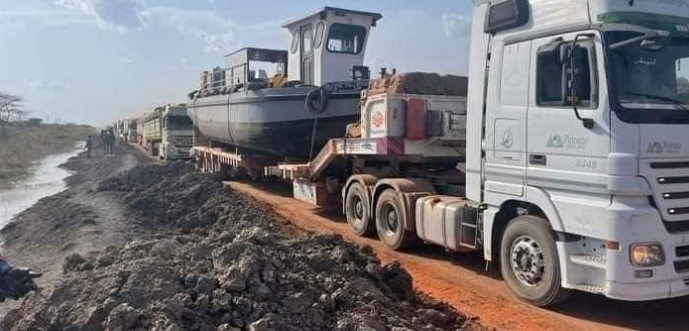A group of advocates in South Sudan has objected to plans that allow dredging of River Naam in Unity State.
Early this month, the Ministry of Irrigation and Water Resources confirmed it signed the controversial dredging deal with the Egyptian government last year.
However, the deal has drawn public uproar and criticisms on the agreement after different government institutions issued parallel reports regarding the project.
Reacting to the controversies in its two-page document, the group known as Save The Sudd Campaign called for an inclusive dialogue that includes communities living within the swamps’ vicinities who depend on its vast resources for their livelihoods and those affected by the swamps flooding.
“Save The Sudd Campaign demand that the deal be halted until a local homegrown solution, informed by science with the participation of the public and the communities affected by the flood,” the statement read in part.
The group demands that the National Legislative Assembly summon, amongst others, officials at the Ministry of Water Resources and Irrigation, the Minister of Foreign Affairs, the Minister of the Environment and Forestry, and the Governor of Unity State to answer questions about the subject matter.
It also called on the National Assembly to form a fact-finding mission to Unity State to ascertain that the equipment is not being assembled to be used for any illegal dredging of any river in South Sudan.
It further demanded that South Sudanese experts in the field and related fields take the lead in facilitating feasibility studies, research, and dialogues to find homegrown solutions to the flooding and other challenges associated with the swamps.
The Cooperation Agreement between South Sudan and Egypt on the Nile dated back to a pre-colonial era when Egypt and the British on behalf of the downstream countries signed the 1929 Nile water agreement, which was renewed in 1959.
In 2006, the two governments signed a Memorandum of Understanding on capacity building of water cadres in Egyptian institutions, dredging, and clearance of aquatic weeds in the Bahr el Ghazal Basin and construction of landing sites.
The deal also included the provision of safe drinking water through the drilling of boreholes and motorizing solar systems.
The agreement states that the Egyptian government carry out a feasibility study for a multi-purpose dam in Western Bahr el Ghazal State.
However, the Ministry of Water Resources recently disclosed that the activities were stopped after the eruption of the 2013 and 2016 conflicts.




